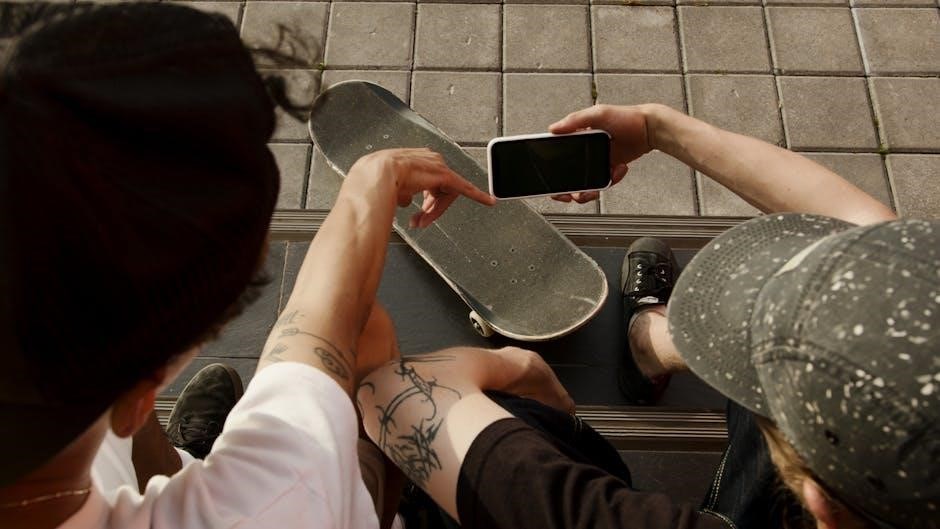Understanding the Emotional Impact of Betrayal
Discovering betrayal by a partner and best friend triggers shock, disbelief, and intense emotional pain. The double betrayal often leads to anger, sadness, and self-blame, shattering trust and self-esteem.
Shock and Disbelief: The Initial Reaction to Infidelity
The discovery of infidelity, especially with someone as close as a best friend, often triggers an overwhelming sense of shock and disbelief. The mind struggles to process such a profound betrayal, leaving one feeling numb and detached from reality. Questions like “How could this happen?” dominate thoughts, as emotions oscillate between confusion, anger, and sadness. The initial reaction is often disbelief, as if the situation feels like an unreal nightmare. This emotional paralysis can make it difficult to confront the reality of the betrayal, leaving the individual questioning their own judgment and the trust they once shared with their partner and friend. The shock of such an event can be deeply traumatic, making it hard to accept the new reality.
Processing Anger and Sadness: Emotional Responses to Betrayal
Betrayal triggers intense emotional responses, with anger and sadness often emerging as dominant feelings. Anger may surface as frustration or resentment, while sadness can manifest as grief over lost trust and friendship. These emotions can feel overwhelming, making it difficult to process the situation calmly. It’s natural to replay memories, questioning how such a breach of trust occurred. Sadness often follows as the reality of the betrayal sets in, leading to a sense of loss and heartbreak. Acknowledging these emotions is crucial for healing. Journaling or talking to a trusted person can help manage these feelings, preventing them from becoming debilitating. Suppressing emotions may hinder the healing process, so expressing them in a healthy way is essential. Time and support are vital to navigate this emotional turmoil.
The Struggle with Self-Blame and Loss of Self-Esteem
Betrayal often leads to self-blame, as individuals question their own worth and actions. Many wonder if they were somehow responsible for the infidelity, doubting their value and judgment. This self-doubt can deeply damage self-esteem, making it difficult to separate one’s identity from the betrayal. It’s common to feel inadequate or unworthy, especially when trust is broken by two people close to you. However, it’s important to remind yourself that their choices reflect their actions, not your worth. Surrounding yourself with supportive people and seeking professional help can aid in rebuilding self-esteem. Acknowledging these feelings without judgment is a crucial step toward healing and regaining confidence.

Why Infidelity Happens: Exploring the Reasons Behind Cheating
Infidelity often stems from unmet emotional needs, relationship dissatisfaction, or opportunities that ignite forbidden attraction. These factors can overshadow commitment, leading to betrayal and complicating relationships profoundly.
Unresolved Emotional Needs and Relationship Dissatisfaction
Unresolved emotional needs and dissatisfaction in a relationship often drive individuals to seek fulfillment elsewhere, including with close friends. When a partner feels unheard or unappreciated, they may turn to others for emotional support, creating a bond that can evolve into infidelity. Similarly, a lack of intimacy or shared connection can lead to vulnerability, making the forbidden attraction more appealing. This dissatisfaction isn’t always about sex but often about feeling seen and valued. In such cases, the betrayal cuts deeper, as it involves someone trusted, like a best friend, intensifying the pain and complicating the path to healing and recovery. This emotional void can be a significant catalyst for cheating.
The Role of Opportunity and Forbidden Attraction
Opportunity and forbidden attraction play significant roles in infidelity, especially when emotional connections blur boundaries. A close friendship between a partner and a best friend can create opportunities for private interactions, fostering a sense of intimacy. The allure of a forbidden connection often intensifies attraction, making it harder to resist. Over time, shared moments and emotional exchanges can evolve into romantic feelings, leading to betrayal. The proximity and trust between friends can facilitate such situations, making the transition from friendship to infidelity seamless. This dynamic highlights how opportunity and attraction can undermine even strong relationships, leading to devastating consequences for all parties involved. Understanding these factors is crucial in addressing the complexities of betrayal.

Confronting the Cheating Partner and Best Friend
Confronting both the cheating partner and best friend requires time to process emotions and choose the right moment for a calm, honest conversation in a private setting.
Preparing for the Conversation: Time and Clarity
Preparing for the conversation with your cheating partner and best friend requires time to process emotions and gain clarity. Allow yourself space to absorb the betrayal, avoiding impulsive decisions. Reflect on your feelings and the questions you need answered. Writing down your thoughts can help organize your emotions and ensure you cover key points. This preparation prevents emotional overwhelm and fosters a more productive dialogue. Taking time also helps you approach the conversation with a clearer mindset, reducing the risk of knee-jerk reactions. While waiting may cause frustration, it allows for a more intentional and composed exchange. Use this period to focus on your needs and boundaries, ensuring your voice is heard when the time comes.
Creating a Safe Space for Open Dialogue
Creating a safe space for open dialogue after betrayal is crucial for constructive communication. Choose a private, calm environment free from distractions to ensure uninterrupted discussion. Setting this space fosters honesty and reduces the risk of escalation. Communicate your need for privacy and clarity beforehand, ensuring all parties are prepared. This setup allows emotional expressions without fear of judgment, promoting authenticity. A neutral location can also help maintain balance, preventing defensiveness. By establishing such a space, you create an opportunity for transparent exchange, which is essential for addressing the betrayal and understanding each other’s perspectives. This approach supports a more respectful and meaningful conversation, aiding in the healing process.

Deciding the Future of the Relationship
Evaluating whether to stay or leave involves assessing the relationship’s viability, setting boundaries, and seeking support to aid in making a decision that aligns with your well-being.
Evaluating Whether to Stay or Leave
Setting Boundaries and Seeking Support
Establishing clear boundaries is essential after betrayal to protect your emotional well-being. Define what you are and aren’t comfortable with moving forward. Open communication with your partner about expectations can help rebuild trust. Surround yourself with supportive friends, family, or a therapist who can provide emotional guidance and validation. Seeking professional help, such as counseling or therapy, can offer tools to navigate the healing process. Setting boundaries also means prioritizing self-care and ensuring your needs are met. A support system can help you process emotions and gain clarity. Remember, healing is a journey, and leaning on others can provide strength during this challenging time.
Healing and Rebuilding Trust
Rebuilding trust after betrayal requires transparency, accountability, and consistent effort. Both parties must commit to open communication and emotional honesty. Professional guidance, like therapy, can facilitate the healing process and strengthen the relationship foundation.
The Importance of Professional Guidance and Therapy
Professional guidance and therapy play a crucial role in healing after betrayal. A therapist provides a safe, non-judgmental space to process emotions like anger, sadness, and confusion. They offer tools and strategies to navigate the complex emotional landscape, helping individuals rebuild trust and self-esteem. Therapy can address unresolved issues and promote open communication. Both individual and joint sessions can be beneficial, focusing on understanding the betrayal’s roots and working toward healing. A therapist can also help prevent cycles of blame or defensiveness, fostering a constructive dialogue. Ultimately, professional support aids in creating a foundation for potential reconciliation or personal growth, ensuring the healing process is guided with empathy and expertise.
Learning to Forgive and Move Forward
Forgiveness after betrayal is a complex, deeply personal journey. It doesn’t erase the pain but allows healing and growth. Acknowledging the hurt while letting go of resentment can free you emotionally. Forgiveness doesn’t mean reconciliation; it’s about releasing negative emotions. Reflecting on the experience with self-compassion helps rebuild trust—in yourself and others. Surrounding yourself with supportive people who uplift you aids in the process. Forgiveness is gradual, requiring patience and understanding. It’s a step toward reclaiming peace and moving forward, whether rebuilding the relationship or starting anew. True healing lies in embracing the lessons learned and fostering resilience for the future.

Lessons Learned: Growing from the Experience
Betrayal by a boyfriend and best friend teaches profound lessons about trust, boundaries, and self-worth. It highlights the importance of surrounding yourself with loyal individuals and recognizing red flags early. The experience often reveals the need for healthier relationship dynamics and improved communication. Learning to set boundaries and prioritize personal integrity is crucial. Healing from such betrayal fosters resilience and a deeper understanding of oneself. It also emphasizes the value of seeking support from trusted friends, family, or professionals. While the pain is undeniable, it can serve as a catalyst for personal growth, helping you emerge stronger and wiser. The journey teaches forgiveness—not for others, but for yourself—and the courage to rebuild trust in future relationships.